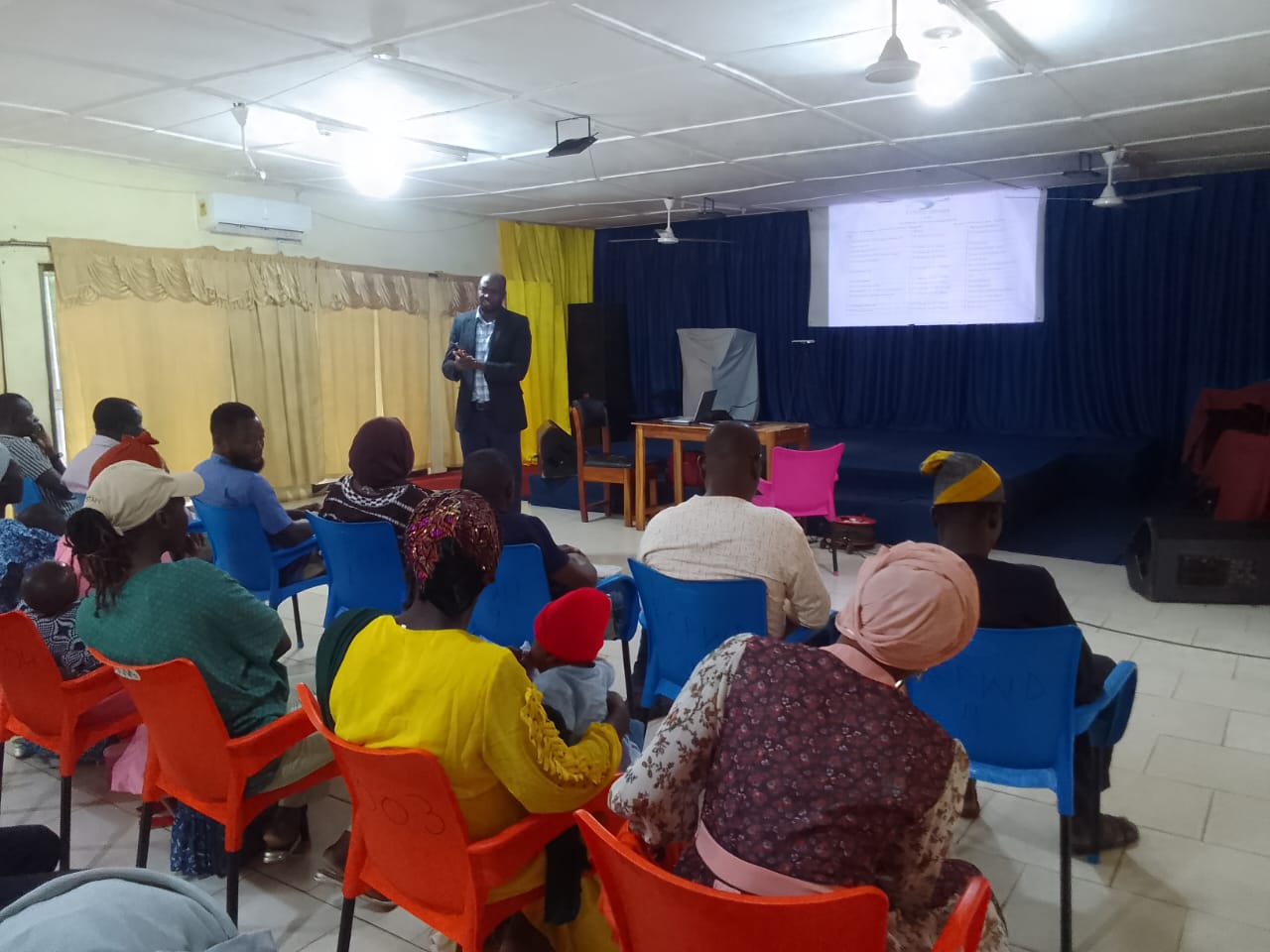On Wednesday 18th October, 2023, CIWED-GH in our implementation of the PAI net-mapping project conducted activity #3 on the project. The aim of the activity was to convene two-district wide meeting to disseminate the findings of the net-maps developed by the participating stakeholders and entities. Invitations sent were specific requesting the presence of the same people who took part in the net mapping exercise. The attendance recorded match a 100% of the total participants invited in both Savelugu municipal and Nanton district.
The discussions commenced with an opening prayer, a brief welcome and introduction by our resource/MERL manager Mr. Aminu Danaa. He introduced the CIWED-GH team and called on the Executive Director Mr. Baako Abdul-Fatawu to give a welcome and opening remarks. Upon completion of this speech, he invited the Resource Mobilization Officer, Mr. Mohammed Nasir-Deen to present the findings of the net-map, indicating that, the general and most important business of the day. Participants were then asked to keep calm and note their concerns, additions and grievances during the course of the presentation.
The presentation was structured in a number of sections, including the introduction of the PAI project, with a brief overview, the objectives and goals of the project and the issues the project seeks to address with regards to healthcare services and delivery in our communities and the district levels espercialy adolescent SRMNCAH+N issues. Additionally, the presentation was centered on the findings of the net-mapping exercises in each district with the relevant stakeholders; state institutions and non-state institutions for both Savelugu and Nanton district. After the presentation, it bred a number of discussions, which are pinpointed below;
- Deliberations on the capturing of power and influence: the participants misrepresented power and influence and came to a conclusion that they shouldn’t be used interchangeably as they mean different things.
- Additionally, Participants commended the presentation revealing that this was representative to the best of their understanding on the net-maps they developed in August.
- Much time should be spent in this types of workshop, so that things that are not properly understood be well and clearly explain to the understanding of all participants.
Challenges encountered during implementation:
In every project implementation, there are bound to be some problems, challenges and roadblocks to the successful implementation of the project. In our case, the challenges faced are below:
- The travel distance of participants from Savelugu municipal and Nanton district affected the participants’ ability to report for the early start of the program.
- There were concerns raised about the use of “power” and “influence” interchangeably stating these were related but not same concepts. This led to the adoption of the word “influence” only in the context of the project.
- The day and time of the program favored some groups (non-state actors) over other (state actors). Majority stated they had to report to work before coming back for the program
Lessons learnt:
- Invitations for next engagements and similar meetings would be consultative, to ensure an appropriate and favorable time for all stakeholders.
- Clear and concise language to be used in the rest of the project delivery to avoid ambiguity and unclear communication.
- The time for the meeting will be fixed ahead of the stipulated start time to cater for participants travel time.
Conclusion
The session was concluded with a presentation done by each district on the topic “ways to improve youths’ interest in healthcare delivery and accountability at the district level”. This was to test their understanding of the net-mapping and the interplay of the various stakeholders in delivering healthcare at the district level. Most of the findings revealed the involvement of the youth in decision making, use of radio and TV drama to stimulate, education, use of media, rekindling the youth community forums would ignite and rekindle the youths’ interest in healthcare delivery and accountability at the district level. the Executive director of CIWED-GH Mr. Baako Abdul-Fatawu, concluded the session and thanked all the participants for their commitment since the inception meeting to this part of the project, urging them to support us when we call on them.


